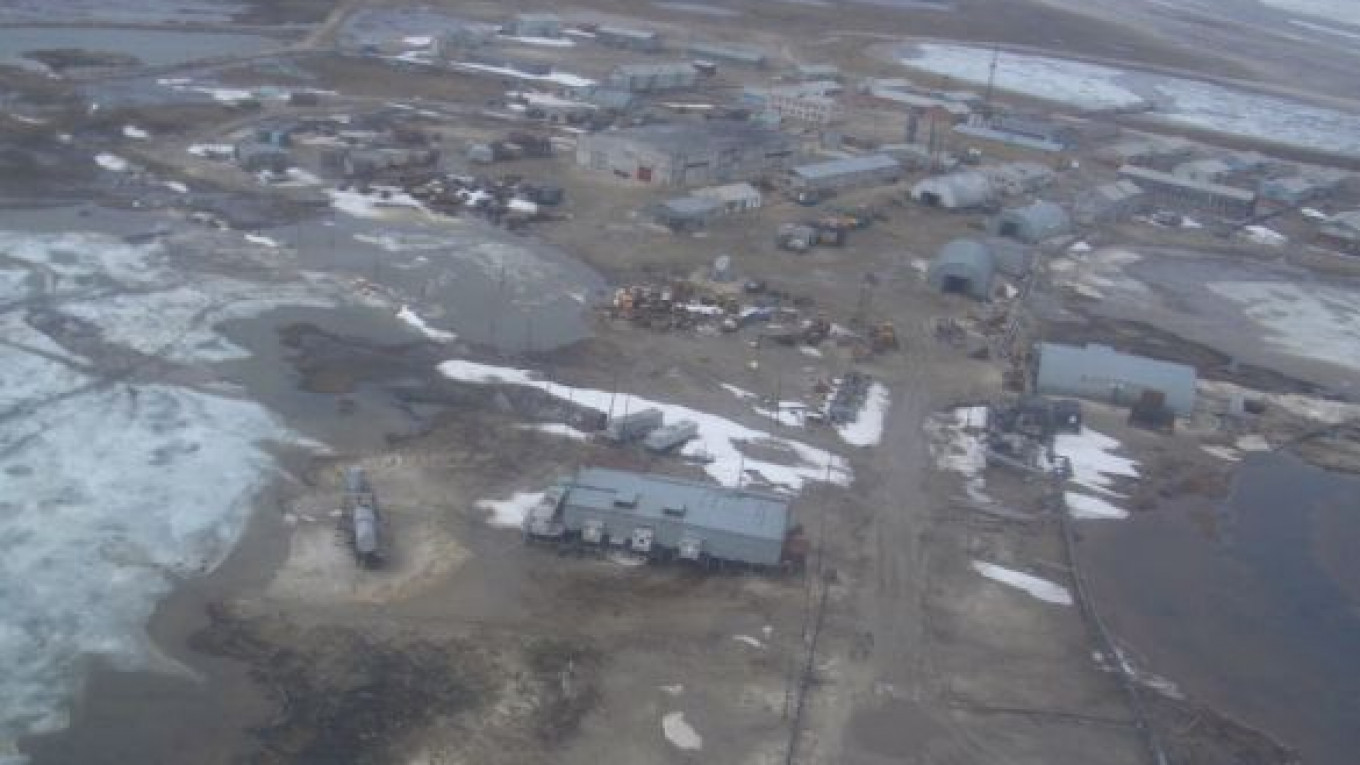SABETTA — Novatek, Russia's No. 2 gas producer, Friday started building a $30 billion Arctic port designed as a gateway for liquefied natural gas exports, signaling a drive by Moscow to diversify away from its reliance on pipeline exports to Europe.
The port of Sabetta would allow Russia to increase exports to China and other Asian countries and could let Novatek challenge the monopoly on gas exports of Gazprom, Russia's No.1 gas producer.
President Vladimir Putin has said liquefied natural gas is a political priority for Russia, the world's largest conventional gas producer.
The country has remained dependent on pipelines to deliver its gas to Europe, its main export market and source of revenue, while rivals such as Norway and Qatar have pressed ahead with seaborne LNG.
The ceremony to start construction of the port represented a major milestone for Novatek and its partner Total, after years of planning and discussions.
Investors have been keenly awaiting the beginning of the project, while the rival Gazprom-led Shtokman project in the Barents Sea is struggling to get off the ground.
The project was approved last year by Putin. It is scheduled to fully open in 2018 when Novatek — where Gennady Timchenko, the well-connected co-owner of Gunvor trading powerhouse, controls over 20 percent — in partnership with France's Total, will launch LNG production on the Yamal peninsula.
A letter was rolled into a time capsule and buried at the site Friday to mark the occasion. "The creation of the port will form the necessary conditions for exploration and development of Yamal peninsula's vast oil and gas deposits," it read.
The Yamal region produces 85 percent of Russia's gas, or one-seventh of global output.
Total investments in the port, including the development of infrastructure and the completion of an Arctic gas carrier fleet, are pegged at 1 trillion rubles ($31.3 billion) with commitments shared between the state and the companies.
The port's annual capacity is expected to reach more than 30 million tons. It will handle oil and gas from the frozen Yamal fields, with shipments to be carried out to the East during the summer via the Northern Sea Route through the Arctic Ocean with the help of icebreakers.
Novatek plans to launch production of LNG in 2016, when it plans to liquefy 5 million tons of gas, rising to 15 million tons in 2018.
LNG is gas cooled to minus 162 degrees Celsius into a liquid that shrinks to less than 1/600 of its original volume. When it arrives at a re-gasification terminal in special tankers, it is returned to a gaseous state and fed into pipelines.
Gazprom has a monopoly on gas exports from Russia, as stipulated in a 2006 law, and its position has been jealously guarded by both the company and the government.
But Novatek and other non-state gas producers are lobbying to lift that barrier, which reduces their selling power to the domestic market, where prices are regulated by the government.
Novatek may have already made a foray into the European gas trade by striking a delivery agreement with German utility company EnBW, according to sources.
Gazprom will formally handle the export of Yamal LNG volumes, clearing them with customs, but arrangements for final marketing to end-users remain unclear.
Yamal LNG would outstrip the Gazprom-led Shtokman project, where the state giant also partners with Total and Norway's Statoil.
The Shtokman partners have been unable to come up with an investment decision due to uncertainties over the tax environment, global gas demand as well as the unconventional gas production boom in the United States. Unlike Shtokman, gas from Yamal LNG was stripped of export duty.
Russia's only LNG plant, which produces 10 million tons of the frozen gas a year, is located in the Pacific island of Sakhalin and is operated by Gazprom in partnership with Shell and Mitsui.
A Message from The Moscow Times:
Dear readers,
We are facing unprecedented challenges. Russia's Prosecutor General's Office has designated The Moscow Times as an "undesirable" organization, criminalizing our work and putting our staff at risk of prosecution. This follows our earlier unjust labeling as a "foreign agent."
These actions are direct attempts to silence independent journalism in Russia. The authorities claim our work "discredits the decisions of the Russian leadership." We see things differently: we strive to provide accurate, unbiased reporting on Russia.
We, the journalists of The Moscow Times, refuse to be silenced. But to continue our work, we need your help.
Your support, no matter how small, makes a world of difference. If you can, please support us monthly starting from just $2. It's quick to set up, and every contribution makes a significant impact.
By supporting The Moscow Times, you're defending open, independent journalism in the face of repression. Thank you for standing with us.
Remind me later.


